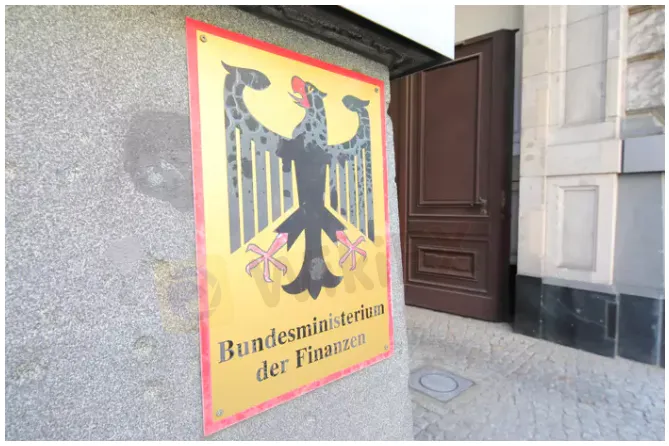简体中文
繁體中文
English
Pусский
日本語
ภาษาไทย
Tiếng Việt
Bahasa Indonesia
Español
हिन्दी
Filippiiniläinen
Français
Deutsch
Português
Türkçe
한국어
العربية
German Federal Ministry of Finance Issues Nationwide Crypto Tax Guide
Abstract:The German finance ministry has issued procedures around the income tax treatment of crypto mining, staking, lending, hard forks, and airdrops.

Key Insights:
The federal finance ministry of Germany has laid down crypto tax guidelines.
German individuals can now sell bitcoin (BTC) or ether (ETH) tax-free after one year of holding.
The guidelines also deal with tax issues around crypto-centric activities like mining, staking, lending, hard forks, and airdrops.
Amid rising uncertainty around cryptocurrencies worldwide, as the global crypto market cap came crashing down to the $1.2 trillion mark, certain positive narratives continue to steer the crypto verses boat.
The federal finance ministry of Germany has issued guidance on the income tax treatment of crypto.
Germany established crypto tax guidelines
The German finance ministrys letter is the first nationwide instruction on the topic, confirming that staked or lent cryptocurrencies are still tax-free if held for over one year.
Additionally, Parliamentary State Secretary Katja Hessel said in a statement that individuals could sell bitcoin (BTC) or ether (ETH) tax-free after one year of holding. This guidance deals with issues like mining, staking, lending, hard forks, and airdrops.
The statement also talks about the tax treatment of buying and selling bitcoin and ether. The guide further states that the one-year period applies even to cryptocurrency that has been lent out or used by someone else as a stake to create new Ethereum blocks.
Additionally, Hessel ruled out applying the alternative ten-year holding period to cryptocurrencies to qualify for tax exemptions that apply to non-mobile assets like land.
According to the guide, income tax doesnt apply when redeeming utility tokens, the crypto assets that give a particular right, such as access to a network or to receive a specific product.
The finance ministry has referred to a 2018 court judgment concerning bearer bonds to say redeeming the tokens doesnt count as a sale under income tax law.
Fast-tracking crypto adoption?
On Jan. 1, 2022, Germany brought in a new law that aimed to encourage German banks to offer crypto services. The law required any business offering crypto services in Germany to seek a license from BaFin, Germanys Federal Financial Supervisory Authority.
Since then, considerable growth has been noted in the number of traditional finance institutions offering crypto services in Germany.
Earlier this year, Germanys Commerzbank (CBK) applied for a crypto license, making Commerzbank the first major bank in Germany to move towards crypto adoption.
As reported earlier today, Commerzbanks net profit in the first quarter increased by 124%, despite increased provisions and writedowns as a result of the Russia-Ukraine conflict.

Disclaimer:
The views in this article only represent the author's personal views, and do not constitute investment advice on this platform. This platform does not guarantee the accuracy, completeness and timeliness of the information in the article, and will not be liable for any loss caused by the use of or reliance on the information in the article.
Read more

Malaysian-Thai Fraud Syndicate Dismantled, Millions in Losses Reported
The Royal Malaysia Police (PDRM) has received 26 reports concerning the Nicshare and CommonApps investment schemes, both linked to a major fraudulent syndicate led by a Malaysian citizen. The syndicate’s activities came to light following the arrest of its leader by Thai authorities on 16 December.

WikiFX Review: Is FxPro Reliable?
Founded in 2006, FxPro is a reputable UK-based broker, trading on various market instruments. In this article, we will help you find the answer to one question: Is FxPro reliable?

Top 10 Trading Indicators Every Forex Trader Should Know
Master the top 10 Forex trading indicators to analyze real-time Forex quotes, trends, and market signals. Learn strategies to boost accuracy and avoid mistakes.

Geopolitical Events: What They Are & Their Impact?
You've heard many times that geopolitical events have a significant impact on the Forex market. But do you know what geopolitical events are and how they affect the FX market? Let us learn about it today.
WikiFX Broker
Latest News
ASIC Sues Binance Australia Derivatives for Misclassifying Retail Clients
Geopolitical Events: What They Are & Their Impact?
Top 10 Trading Indicators Every Forex Trader Should Know
WikiFX Review: Is FxPro Reliable?
Malaysian-Thai Fraud Syndicate Dismantled, Millions in Losses Reported
Trading frauds topped the list of scams in India- Report Reveals
Why Do You Feel Scared During Trade Execution?
WikiFX Review: Something You Need to Know About Markets4you
Revolut Leads UK Neobanks in the Digital Banking Revolution
Fusion Markets: Safe Choice or Scam to Avoid?
Currency Calculator


